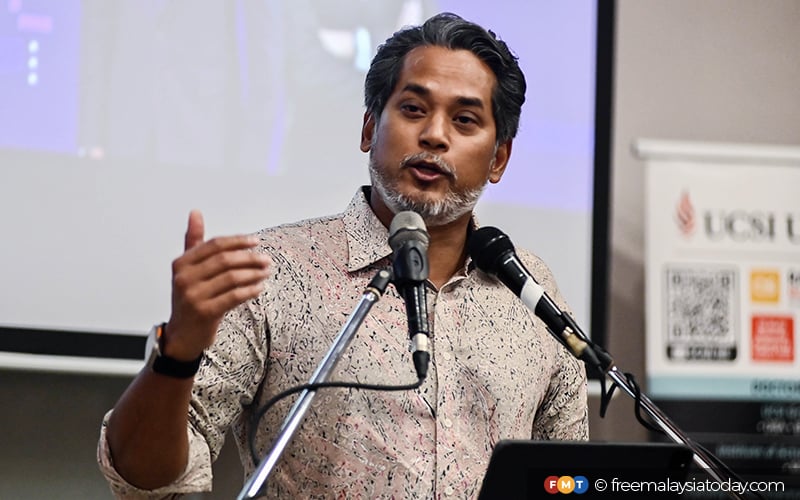
PETALING JAYA: Malaysia needs a leader who is willing to risk his political career by taking unpopular measures to reform the economy and put it back on strong fiscal footing, said former Umno Youth chief Khairy Jamaluddin.
Khairy said he agreed with the view that the series of structural reforms the country needed was painful and could make the government of the day lose the support of the people.
“This is why I said you need to have a policymaker who doesn’t really care what happens to them,” he was quoted as saying in an interview with the Edge.
Khairy, who is also a former health minister, said subsidy rationalisation, the goods and services tax (GST), and government pension reforms were the top three tasks that Putrajaya must carry out sooner rather than later.
“I spoke about subsidy rationalisation and public sector pension reforms in the past. It’s painful, of course, because some people will not get (targeted) subsidies and they’ll be ‘pissed off’.
“That is why you have to educate the people, and this is the only way that we’re going to be sustainable, and we’ll use the revenue (money saved) for public goods, education, health, things that help everyone, public transport and infrastructure.”
Khairy said he believed the current government was reluctant to reintroduce the GST, which the Pakatan Harapan government zero-rated when it won Putrajaya in 2018.
He believed the window of opportunity to reintroduce the tax was closing.
“Anwar (Prime Minister and finance minister Anwar Ibrahim) may have until the next budget (Budget 2024) to announce it, and it will take only one year for the market to be ready as the system is already there.
“If you announce it next year, then it’s going to come into effect in 2025. The next general election is going to be in 2027, and you don’t want to fool around with taxes when it is so close to the elections,” he said.
On the pensions issue, Khairy said there was a need to reform the civil servants’ pension scheme to cut down on operating expenditure.
The federal government currently spends almost half of its revenue on civil service emoluments as well as pensions and gratuities. The government’s operating expenditure currently takes up 99% of the public revenue.
He said new hires in public service, including politicians, should not be given pensions and should instead be given coverage under EPF.
“I told (Anwar) this when I met him at the finance ministry. I said that every day you delay pension reform, you are adding to the pension bill,” he said.
Unfair to blame PH govt for delays
Khairy said the government could not be blamed for being slow in fixing economic problems, adding that the structural issues involved were inherited from previous governments.
“It’s an accumulation of years of not wanting to come to terms with the truth,” he said, in describing the country’s fiscal position.
He lamented that there was “no real attempt” to undertake reforms in the wake of the 2008 global financial crisis.
“To what was quite necessarily correct at the time, after 2008, there has been increased inequality because of the hard edges of globalisation, and Najib Razak came with cash transfers. That was when we moved to centre left in economic management,” he said.
He said the nation’s fiscal position had been stretched since the government started giving cash aid, a measure that was seen as populist.
He also attributed the weakening ringgit and capital outflows to the structural issues that the country was facing.
The ringgit has depreciated 3.92% to RM4.58 against the US dollar year to date. It slid to a record low of RM4.74 on Nov 4 last year. - FMT



No comments:
Post a Comment
Note: Only a member of this blog may post a comment.